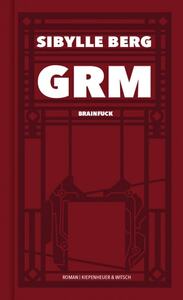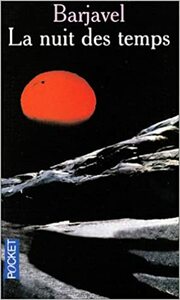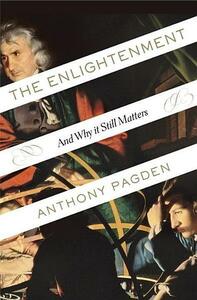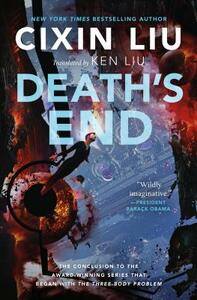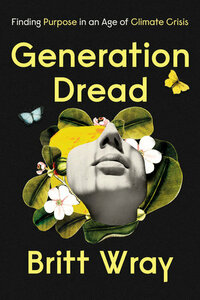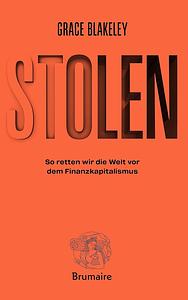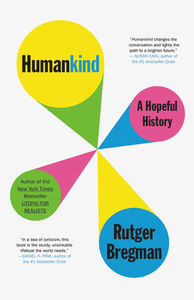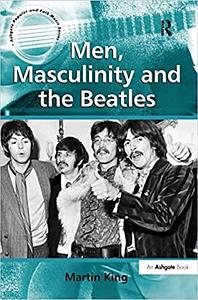You need to sign in or sign up before continuing.
Take a photo of a barcode or cover
pascalthehoff's reviews
404 reviews
Ein Roman der Extreme – nicht sonderlich subtil, aber dafür lächerlich nuanciert. Die unzähligen eingeworfenen Details, die diese düstere Zukunftsvision mit Leben füllen, sind ein Zeichen entweder irrwitziger Recherche oder dauerhafter Absorption von Newsinhalten rund um die Uhr.
Wenn es so etwas wie deutschsprachigen Cyberpunk gibt, dürfte GRM das beste Beispiel sein. Nicht, weil es die üblichen Klischees mit Androiden oder orientalistisch gefärbten Tech-Konglomeraten erfüllt, sondern weil es eine komplett eigene, zeitgemäße Vision spinnt. Denn viel wichtiger als die altgedienten Klischees ist, dass Cyberpunk düster ist und überzeichnet – und GRM schreit geradezu aus seinen Zeilen. „You couldn’t do this in a movie“, so grotesk sind viele der Charaktere und Ereignisse. Ein weiterer Grund, weshalb Literatur auch im 21. Jahrhundert unverändert relevant bleibt – falls jemand noch einen gesucht hat.
Dass GRM derartig abstoßend ist, sich geradezu in seinem Dreck suhlt, spaltete mich innerlich von der ersten bis zur letzten Seite. Das Weltbild, das GRM zeichnet, zeigt uns keine realistische Zukunftsvision. Der Roman zeigt uns viel eher den Worst Case aktueller wirtschaftlicher, gesellschaftlicher und technologischer Entwicklungen, sollten wir nicht irgendwann hart gegenlenken.
Der Grundstein dieser Erzählung ist ein Menschenbild, das pessimistischer und verdrossener kaum sein könnte. GRM spricht der Menschheit jegliche Kapazität für Großzügigkeit, Empathie und Selbstlosigkeit ab. Oder zumindest den Menschen in London, wo die Geschichte fast ohne Blick nach außen stattfindet.
Aufgrund dieses extremen Fatalismus fiel es mir schwer, mich vollends auf die Faszination des Romans einzulassen. Gleichzeitig zieht GRM dieses Konzept so konsequent durch, dass es zu seiner einzigartigen Identität wird. Ich hoffe, niemand liest GRM und baut darauf sein Menschenbild oder sein Bild der Zukunft auf. In dieser Hinsicht bedient GRM das gefährliche Klischee eines Lord of the Flies – eines „Klassikers“, der Menschen als im Grunde egoistische Wesen darstellt und damit bis heute das Menschenbild unzählier Leser*innen färbt.
Arrangiert man sich mit dem Misanthropiepedal, das der Roman durch den Boden drückt, wird GRM zum eindrucksvollen dystopischen Monument; es macht zuweilen sogar Spaß. Teils absurd komisch, teils einfach nur überzogen zum eigenen Zweck, verleitet der Roman mit seinen fließenden Kapitelübergängen dazu, Seite um Seite zu verschlingen. Wegschauen fällt schwer, GRM ist da schlimmer als jeder Autounfall.
Ungewöhnlich ist zudem, wie technologieskeptisch GRM insgesamt ist. Degrowth- und Back-to-nature-Trends sind 2022 nichts Neues, doch gelten Digitalisierung und neue Technologien allgemein eher als Heilsbringer denn als Risiko. Neben seinen offensichtlich zwielichtigen Überwachungsmechanismen zeigt GRM, wie riskant sogar solche Technologien sein können, die wir seit Jahren als normalen, sicheren Teil des Alltags ansehen – vom bargeldlosen Zahlen bis zur Verwendung immer mehr einzelner digitaler Geräte, die wertvolle Ressourcen für nice-to-have Zwecke verschwenden.
Ein absolut einzigartiger Roman mit so vielen Ecken und Kanten, dass es unmöglich ist, sich nicht irgendwo zu schneiden. Aber aus der Hand legen will man ihn trotzdem nicht.
Wenn es so etwas wie deutschsprachigen Cyberpunk gibt, dürfte GRM das beste Beispiel sein. Nicht, weil es die üblichen Klischees mit Androiden oder orientalistisch gefärbten Tech-Konglomeraten erfüllt, sondern weil es eine komplett eigene, zeitgemäße Vision spinnt. Denn viel wichtiger als die altgedienten Klischees ist, dass Cyberpunk düster ist und überzeichnet – und GRM schreit geradezu aus seinen Zeilen. „You couldn’t do this in a movie“, so grotesk sind viele der Charaktere und Ereignisse. Ein weiterer Grund, weshalb Literatur auch im 21. Jahrhundert unverändert relevant bleibt – falls jemand noch einen gesucht hat.
Dass GRM derartig abstoßend ist, sich geradezu in seinem Dreck suhlt, spaltete mich innerlich von der ersten bis zur letzten Seite. Das Weltbild, das GRM zeichnet, zeigt uns keine realistische Zukunftsvision. Der Roman zeigt uns viel eher den Worst Case aktueller wirtschaftlicher, gesellschaftlicher und technologischer Entwicklungen, sollten wir nicht irgendwann hart gegenlenken.
Der Grundstein dieser Erzählung ist ein Menschenbild, das pessimistischer und verdrossener kaum sein könnte. GRM spricht der Menschheit jegliche Kapazität für Großzügigkeit, Empathie und Selbstlosigkeit ab. Oder zumindest den Menschen in London, wo die Geschichte fast ohne Blick nach außen stattfindet.
Aufgrund dieses extremen Fatalismus fiel es mir schwer, mich vollends auf die Faszination des Romans einzulassen. Gleichzeitig zieht GRM dieses Konzept so konsequent durch, dass es zu seiner einzigartigen Identität wird. Ich hoffe, niemand liest GRM und baut darauf sein Menschenbild oder sein Bild der Zukunft auf. In dieser Hinsicht bedient GRM das gefährliche Klischee eines Lord of the Flies – eines „Klassikers“, der Menschen als im Grunde egoistische Wesen darstellt und damit bis heute das Menschenbild unzählier Leser*innen färbt.
Arrangiert man sich mit dem Misanthropiepedal, das der Roman durch den Boden drückt, wird GRM zum eindrucksvollen dystopischen Monument; es macht zuweilen sogar Spaß. Teils absurd komisch, teils einfach nur überzogen zum eigenen Zweck, verleitet der Roman mit seinen fließenden Kapitelübergängen dazu, Seite um Seite zu verschlingen. Wegschauen fällt schwer, GRM ist da schlimmer als jeder Autounfall.
Ungewöhnlich ist zudem, wie technologieskeptisch GRM insgesamt ist. Degrowth- und Back-to-nature-Trends sind 2022 nichts Neues, doch gelten Digitalisierung und neue Technologien allgemein eher als Heilsbringer denn als Risiko. Neben seinen offensichtlich zwielichtigen Überwachungsmechanismen zeigt GRM, wie riskant sogar solche Technologien sein können, die wir seit Jahren als normalen, sicheren Teil des Alltags ansehen – vom bargeldlosen Zahlen bis zur Verwendung immer mehr einzelner digitaler Geräte, die wertvolle Ressourcen für nice-to-have Zwecke verschwenden.
Ein absolut einzigartiger Roman mit so vielen Ecken und Kanten, dass es unmöglich ist, sich nicht irgendwo zu schneiden. Aber aus der Hand legen will man ihn trotzdem nicht.
Ceci a été seulement le second roman, j'ai lu entièrement en français, donc, cela pourrait se refléter dans ce texte. Cela dit, ce roman est un bon point de départ pour se lancer dans les livres français en tant qu'apprenant intermédiaire.
La nuit des temps est, sans aucun doute, un enfant du sommet de l'anxiété de la guerre froide. La façon dont il essaie de faire les deux côtés collaborer, pour une plus grande cause, montre comme les valeurs personnelles individuelles s'opposent à positions idéologiques ou nationalistes.
Toute la chronologie des progéniteurs (dont je ne pensais pas qu'elle serait aussi étendue) est au fond une parabole pour l'anxiété atomique - en plus des concepts utopiques qui ressembler à une monde dans lequel le socialisme a été bien fait. (Et aussi des anecdotes sur l'histoire ici et là, comme les Noirs originaires de Mars - yikes!)
S'il y a un autre thème unifiant, c'est celui des nombreuses parties qui essaient de faire ce qui est juste, mais qui cédent à leurs pulsions et besoins subjectives : Les pays qui pensent que seulement eux peuvent gérer la situation, le savant qui s'attache trop à son objet scientifique (peut-être un peu trop vite pour être crédible), et le "objet" scientifique lui-même qui a son propre libre arbitre.
L'aspect le plus cruel du roman, et ce qui me frappe le plus, est le peu de respect véritable que notre société porte à l'ancienne civilisation. Les décideurs du 20e siècle reconnaissent que la connaissance de cette ancienne culture pourrait être extrêmement précieuse. Mais c'est cette implication d'une valeur quantifiable qui contamine toute la cause.
---
This has been only the second novel I’ve ever read entirely in French and this might reflect in this review. That being said - this is a great one to get into French books as an intermediate learner!
La nuit de temps is an unmistakable child of the pinnacle of cold war anxiety. The way it tries to make both sides work together, for a greater cause, shows how ideological and nationalistic positions clash with individual personal values.
The entire progenitor timeline (which I didn’t expect to be so overly extensive) is basically a parabola for atomic age anxiety - built on top of utopian concepts that resemble a world where socialism has been done right. (And also the awkward lore anecdote here and there like Black people originating from Mars - yikes!)
If there is another unifying theme, it is the many different parties trying to do the right thing, but then giving in to their subjective urges: Countries thinking only they could handle the situation, a scientist getting too attached to his object (maybe a bit too fast to be believable), and the scientific “object” itself having its own free will.
The bitterest aspect of the novel, and what really struck me the most, is how little genuine respect our society has for the old civilization. 20th century decision makers acknowledge that insights into this old culture might be priceless. But it is that implication of quantifiable value that taints the entire cause.
La nuit des temps est, sans aucun doute, un enfant du sommet de l'anxiété de la guerre froide. La façon dont il essaie de faire les deux côtés collaborer, pour une plus grande cause, montre comme les valeurs personnelles individuelles s'opposent à positions idéologiques ou nationalistes.
Toute la chronologie des progéniteurs (dont je ne pensais pas qu'elle serait aussi étendue) est au fond une parabole pour l'anxiété atomique - en plus des concepts utopiques qui ressembler à une monde dans lequel le socialisme a été bien fait. (Et aussi des anecdotes sur l'histoire ici et là, comme les Noirs originaires de Mars - yikes!)
S'il y a un autre thème unifiant, c'est celui des nombreuses parties qui essaient de faire ce qui est juste, mais qui cédent à leurs pulsions et besoins subjectives : Les pays qui pensent que seulement eux peuvent gérer la situation, le savant qui s'attache trop à son objet scientifique (peut-être un peu trop vite pour être crédible), et le "objet" scientifique lui-même qui a son propre libre arbitre.
L'aspect le plus cruel du roman, et ce qui me frappe le plus, est le peu de respect véritable que notre société porte à l'ancienne civilisation. Les décideurs du 20e siècle reconnaissent que la connaissance de cette ancienne culture pourrait être extrêmement précieuse. Mais c'est cette implication d'une valeur quantifiable qui contamine toute la cause.
---
This has been only the second novel I’ve ever read entirely in French and this might reflect in this review. That being said - this is a great one to get into French books as an intermediate learner!
La nuit de temps is an unmistakable child of the pinnacle of cold war anxiety. The way it tries to make both sides work together, for a greater cause, shows how ideological and nationalistic positions clash with individual personal values.
The entire progenitor timeline (which I didn’t expect to be so overly extensive) is basically a parabola for atomic age anxiety - built on top of utopian concepts that resemble a world where socialism has been done right. (And also the awkward lore anecdote here and there like Black people originating from Mars - yikes!)
If there is another unifying theme, it is the many different parties trying to do the right thing, but then giving in to their subjective urges: Countries thinking only they could handle the situation, a scientist getting too attached to his object (maybe a bit too fast to be believable), and the scientific “object” itself having its own free will.
The bitterest aspect of the novel, and what really struck me the most, is how little genuine respect our society has for the old civilization. 20th century decision makers acknowledge that insights into this old culture might be priceless. But it is that implication of quantifiable value that taints the entire cause.
Can't blame a book on the entire Enlightenment movement for being too extensive, I guess. The fact that this book still manages to explain the relations between the many concepts and schools of thought rather elegantly speaks more for it than against.
As a first foray into the subject in your leisure time, however, it can seem overwhelming or like too much information. Even relatively minor concepts tend to be explained in great detail. In the end I felt like I had already forgotten many of the major points in this sea of information. Also, the whole "And Why It Still Matters" part is rather understated – if only because our entire Western civilization is a product of Enlightenment philosophy. So basically, every line in this book is why it still matters. It just doesn't draw all too many explicit connections between the Age of Enlightenment and modern phenomena.
Are there easier, more succinct ways to get into individual concepts or thinkers of the Enlightenment age? Sure. But as far as comprehensive treatments of the bigger picture go, this is a great place to start, as long as you're fine with not needing to grasp every detail when the information gets more dense. Definitely not a book I could answer a quiz on, but I have a better idea of things overall.
As a first foray into the subject in your leisure time, however, it can seem overwhelming or like too much information. Even relatively minor concepts tend to be explained in great detail. In the end I felt like I had already forgotten many of the major points in this sea of information. Also, the whole "And Why It Still Matters" part is rather understated – if only because our entire Western civilization is a product of Enlightenment philosophy. So basically, every line in this book is why it still matters. It just doesn't draw all too many explicit connections between the Age of Enlightenment and modern phenomena.
Are there easier, more succinct ways to get into individual concepts or thinkers of the Enlightenment age? Sure. But as far as comprehensive treatments of the bigger picture go, this is a great place to start, as long as you're fine with not needing to grasp every detail when the information gets more dense. Definitely not a book I could answer a quiz on, but I have a better idea of things overall.
While I was pretty sure how The Dark Forest would expand on the story of The Three Body Problem, The Dark Forest left me pretty puzzled as to what would come next.
I expected Death's End to feel a bit tacked on, like a forced third chapter to a trilogy that reached its peak and logical conclusion with the second entry.
Oh, I couldn't have been more wrong.
I'm not a person whose brain is a library, but I've read my fair share of books; most of them good, some of them great. In my entire life, no piece of literature has ever moved me in a way this trilogy moved me. And I'm not simply talking about being touched on an emotional level like, for example, a great tragic love story would touch you.
I'm talking about being shaken in my innermost perception of the concept and meaning of life and our universe. While other truly great works of Sci-Fi were usually able to grant me some new perspectives on certain aspects of reality, Cixin Liu's books just kept on expanding my understanding of the world until the very last page.
It doesn't matter how precise Cixin Liu's speculations in this series actually are. I could never prove or disprove any of his galaxy-brain-fueled ideas anyway. What does matter, however, is how he turned plausible theories about existential philosophy and the possibilities of science into such a compelling and gripping narrative.
While I usually dislike it when sequels try to trump their predecessors by simply upping the ante, in this case, the escalation feels absolutely natural.
Never could I have expected where this story, which started in 1960s China, would go over the course of the trilogy. These books contain some of the wildest and most mind-bending imagery to ever grace my mind – and I'm usually not that great in visualizing written fiction in my head.
The fact that Cixin Liu significantly grew as a storyteller across the three entries of the trilogy is merely the cherry on top. The third book features by far the most lovable and most relatable characters as well as the most elegant prose of the trilogy – at least in the English translation.
I can't recommend this book and this trilogy enough to absolutely anyone, whether you're usually into Sci-Fi or not. And I'd like to sincerely thank the author for helping me expand my speculative understanding of our universe.
I expected Death's End to feel a bit tacked on, like a forced third chapter to a trilogy that reached its peak and logical conclusion with the second entry.
Oh, I couldn't have been more wrong.
I'm not a person whose brain is a library, but I've read my fair share of books; most of them good, some of them great. In my entire life, no piece of literature has ever moved me in a way this trilogy moved me. And I'm not simply talking about being touched on an emotional level like, for example, a great tragic love story would touch you.
I'm talking about being shaken in my innermost perception of the concept and meaning of life and our universe. While other truly great works of Sci-Fi were usually able to grant me some new perspectives on certain aspects of reality, Cixin Liu's books just kept on expanding my understanding of the world until the very last page.
It doesn't matter how precise Cixin Liu's speculations in this series actually are. I could never prove or disprove any of his galaxy-brain-fueled ideas anyway. What does matter, however, is how he turned plausible theories about existential philosophy and the possibilities of science into such a compelling and gripping narrative.
While I usually dislike it when sequels try to trump their predecessors by simply upping the ante, in this case, the escalation feels absolutely natural.
Never could I have expected where this story, which started in 1960s China, would go over the course of the trilogy. These books contain some of the wildest and most mind-bending imagery to ever grace my mind – and I'm usually not that great in visualizing written fiction in my head.
The fact that Cixin Liu significantly grew as a storyteller across the three entries of the trilogy is merely the cherry on top. The third book features by far the most lovable and most relatable characters as well as the most elegant prose of the trilogy – at least in the English translation.
I can't recommend this book and this trilogy enough to absolutely anyone, whether you're usually into Sci-Fi or not. And I'd like to sincerely thank the author for helping me expand my speculative understanding of our universe.
Standing out among the myriad of books on climate crisis, Generation Dread offers a refreshing approach towards accepting climate anxiety and turning dread into constructive action.
In many ways, Generation Dread was just what I needed at the exact right time. (I've consumed way too much negative info on climate change in the weeks prior to reading this book.) While most works on climate change mention a need to act, Generation Dread is the first book I've read that actually put this call-to-action into a realistic perspective – in such a way that it might actually mean something to the individual reader and change them.
Generation Dread did the impossible and actually gave me a sliver of hope for the future. Especially impressive is its entire internal discourse on having children (or not) in the age of climate crisis. It made me reconsider stances that have been deeply ingrained in my mind for a long time.
Lots of the insights and advices are rather metaphysical, which makes it feel like a self-help book at times. But in the end, maybe this is just what we need, facing this insurmountable-seeming challenge. Generation Dread's cautious optimism as well as its affirmation of the value of every single person contributing to a better future make it a book every anxious Millennial or Zoomer should read.
In many ways, Generation Dread was just what I needed at the exact right time. (I've consumed way too much negative info on climate change in the weeks prior to reading this book.) While most works on climate change mention a need to act, Generation Dread is the first book I've read that actually put this call-to-action into a realistic perspective – in such a way that it might actually mean something to the individual reader and change them.
Generation Dread did the impossible and actually gave me a sliver of hope for the future. Especially impressive is its entire internal discourse on having children (or not) in the age of climate crisis. It made me reconsider stances that have been deeply ingrained in my mind for a long time.
Lots of the insights and advices are rather metaphysical, which makes it feel like a self-help book at times. But in the end, maybe this is just what we need, facing this insurmountable-seeming challenge. Generation Dread's cautious optimism as well as its affirmation of the value of every single person contributing to a better future make it a book every anxious Millennial or Zoomer should read.
For my first seminar in American literary studies I wrote the most basic paper on "The American Dream in The Great Gatsby". (I was young and needed the grade.) In preparation for that paper, my lecturer recommended me to read James Truslow Adams' The Epic of America, an encompassing history of the USA published in the early 20th century, written from a heavily biased pro-US perspective.
After having read The Epic of America cover to cover, I, as a German, finally felt like I understood why the US didn't "lack a culture of its own" as Europeans often scornfully claim. The very nature of the USA's almost artificial approach to building a nation from a conglomerate of other – mostly Western European – cultures, combined with the pretense of radical freedom and individualism WAS the essence of a valid American cultural identity, in the best and worst ways.
At least for some years, this positive angle towards US history and cultural identity put me in a cautiously optimistic "see the good in America" perspective, which is also the basis – and only the basis – of Kurt Andersen's Fantasyland.
Reading Fantasyland in 2022, however, a whole Trump presidency later, I was by now on the other side of the page, questioning and criticizing many aspects of US culture. Nothing special, really. Especially for an outsider looking in. The last few years gave Europe and the rest of the world more than enough reasons to laugh at the US. That criticism, however, is often too caught up in the moment, based on single facts or events we can point towards – like the abysmal covid politics, the ridiculous yet scary Capitol attack or (Europeans' all-time favorite) the US healthcare system.
HOW these things came to be however, is almost never discussed to an encompassing degree. Public discourse often seeks shallow causality in recent occurrences or overarching platitudes like "well the United States are a neoliberal nation". Never have I seen anybody examine the sometimes century-old roots of all problems so profoundly as Kurt Andersen in Fantasyland.
Those roots are often less political or ideological than they are psychological or philosophical. Fantasyland examines the baffling degree to which "alternative facts" have always been deeply ingrained in every facet of US culture, from its very inception – arguably being the very foundation the modern USA have been built upon, way before the 1960s, Reagan and Trump. From religion to video games, Fantasyland isn't scared to critically question the cultural and psychological implications of even the most beloved staples of global modern life.
The book is an astonishingly encompassing, astute and all but essential companion piece to every retelling of the history of the United States ever. Insightful to a degree that I'm almost angry the book didn't exist as a compass for "further reading" when I studied American cultural studies myself.
(P.S. It's funny, though, how a book THAT well-researched lumps Final Fantasy in the same pot as Mortal Kombat. But I guess that's just boomers writing about "playing as a killer in Halo".)
After having read The Epic of America cover to cover, I, as a German, finally felt like I understood why the US didn't "lack a culture of its own" as Europeans often scornfully claim. The very nature of the USA's almost artificial approach to building a nation from a conglomerate of other – mostly Western European – cultures, combined with the pretense of radical freedom and individualism WAS the essence of a valid American cultural identity, in the best and worst ways.
At least for some years, this positive angle towards US history and cultural identity put me in a cautiously optimistic "see the good in America" perspective, which is also the basis – and only the basis – of Kurt Andersen's Fantasyland.
Reading Fantasyland in 2022, however, a whole Trump presidency later, I was by now on the other side of the page, questioning and criticizing many aspects of US culture. Nothing special, really. Especially for an outsider looking in. The last few years gave Europe and the rest of the world more than enough reasons to laugh at the US. That criticism, however, is often too caught up in the moment, based on single facts or events we can point towards – like the abysmal covid politics, the ridiculous yet scary Capitol attack or (Europeans' all-time favorite) the US healthcare system.
HOW these things came to be however, is almost never discussed to an encompassing degree. Public discourse often seeks shallow causality in recent occurrences or overarching platitudes like "well the United States are a neoliberal nation". Never have I seen anybody examine the sometimes century-old roots of all problems so profoundly as Kurt Andersen in Fantasyland.
Those roots are often less political or ideological than they are psychological or philosophical. Fantasyland examines the baffling degree to which "alternative facts" have always been deeply ingrained in every facet of US culture, from its very inception – arguably being the very foundation the modern USA have been built upon, way before the 1960s, Reagan and Trump. From religion to video games, Fantasyland isn't scared to critically question the cultural and psychological implications of even the most beloved staples of global modern life.
The book is an astonishingly encompassing, astute and all but essential companion piece to every retelling of the history of the United States ever. Insightful to a degree that I'm almost angry the book didn't exist as a compass for "further reading" when I studied American cultural studies myself.
(P.S. It's funny, though, how a book THAT well-researched lumps Final Fantasy in the same pot as Mortal Kombat. But I guess that's just boomers writing about "playing as a killer in Halo".)
Probably the most comprehensive work on the world’s biggest problems I’ve read so far. Stolen isn’t afraid to be redundant at times in order to establish the connections between certain phenomena as well as to hammer in essential points again and again.
Stolen is of those books that should be mandatory reading for everyone on the planet. Alas, the fact that it is not that - and far from it - taints the streaks of optimism towards the end. Tackling a very complex problem (albeit in the most approachable way arguably possible), Stolen is still too dense and too long to reach those not already interested in its topics. But it‘s not the book‘s fault the system is THAT broken.
Stolen is of those books that should be mandatory reading for everyone on the planet. Alas, the fact that it is not that - and far from it - taints the streaks of optimism towards the end. Tackling a very complex problem (albeit in the most approachable way arguably possible), Stolen is still too dense and too long to reach those not already interested in its topics. But it‘s not the book‘s fault the system is THAT broken.
The only disheartening thing about Rutger Bregman's optimistic realism is that it has not yet become reality and we probably won't live to see it happen.
With Humankind, more than with any other book I've ever read, I felt like if all children around the world read this book in school, the world would be a better place. This book sheds eye-opening epiphanies at an almost staggering frequency. If Bregman's sources and references weren't that airtight, this would read a lot like the manifest of some new radical optimist cult. So much so, that you nevertheless feel the urge to cram this book down everyone's throat like you're a possessed person.
That violent appeal to more peace and solidarity aside – what a refreshing read this was! Finally a book that is unabashedly positive without feeling starry-eyed. The perfect remedy to the age of populism and internet-idiocy.
With Humankind, more than with any other book I've ever read, I felt like if all children around the world read this book in school, the world would be a better place. This book sheds eye-opening epiphanies at an almost staggering frequency. If Bregman's sources and references weren't that airtight, this would read a lot like the manifest of some new radical optimist cult. So much so, that you nevertheless feel the urge to cram this book down everyone's throat like you're a possessed person.
That violent appeal to more peace and solidarity aside – what a refreshing read this was! Finally a book that is unabashedly positive without feeling starry-eyed. The perfect remedy to the age of populism and internet-idiocy.
Man muss kein Klimaleugner zu sein, um nur ein schwammiges Bild von den Auswirkungen des Klimawandels auf Deutschland im Jahr 2050 zu haben. "Warme Großstädte, der Norden wird überflutet, irgendwas mit Massenmigrationen... aber sonst geht es uns doch gut hier, oder? Wetter wie in Italien halt."
Was "Wetter wie in Italien" aber konkret für das alltägliche Leben und das Ökosystem eines Landes wie Deutschland bedeutet, wird selten besprochen. Nicht nur hat sich die deutsche Flora und Fauna über Jahrtausende an bestehende Bedingungen gewöhnt – auch, dass Deutschland in Zukunft sowohl sehr heiße, als auch sehr kalte Temperaturen (im Gegensatz zu südlichen Ländern) ertragen muss, bringt etliche bis dato unlösbare Probleme in Logistik und Co. mit sich.
Deutschland 2050 wirft einen dringend benötigten Rundumblick – auf unmittelbar lebensbedrohliche Faktoren wie Hitzetod, Nahrungs- oder Wassermangel, aber auch auf tiefgreifende systemische Probleme oder kulturelle Verluste in der kollektiven Nationalidentität.
Zu viele Deutsche sehen Klimaschutz noch immer als eine Art Empathieprojekt für den globalen Süden – und beurteilen dann irrational, für wie wichtig sie ein solches Unterfangen halten. Dabei ist Klimaschutz auch in Deutschland alles andere als selbstlos, weil die Folgen auch uns unmittelbar betreffen werden. Dieses Buch ist das beste Einstiegswerk, um das zu begreifen; auch, wenn es – wie üblich – nicht die Richtigen erreichen wird.
Was "Wetter wie in Italien" aber konkret für das alltägliche Leben und das Ökosystem eines Landes wie Deutschland bedeutet, wird selten besprochen. Nicht nur hat sich die deutsche Flora und Fauna über Jahrtausende an bestehende Bedingungen gewöhnt – auch, dass Deutschland in Zukunft sowohl sehr heiße, als auch sehr kalte Temperaturen (im Gegensatz zu südlichen Ländern) ertragen muss, bringt etliche bis dato unlösbare Probleme in Logistik und Co. mit sich.
Deutschland 2050 wirft einen dringend benötigten Rundumblick – auf unmittelbar lebensbedrohliche Faktoren wie Hitzetod, Nahrungs- oder Wassermangel, aber auch auf tiefgreifende systemische Probleme oder kulturelle Verluste in der kollektiven Nationalidentität.
Zu viele Deutsche sehen Klimaschutz noch immer als eine Art Empathieprojekt für den globalen Süden – und beurteilen dann irrational, für wie wichtig sie ein solches Unterfangen halten. Dabei ist Klimaschutz auch in Deutschland alles andere als selbstlos, weil die Folgen auch uns unmittelbar betreffen werden. Dieses Buch ist das beste Einstiegswerk, um das zu begreifen; auch, wenn es – wie üblich – nicht die Richtigen erreichen wird.
